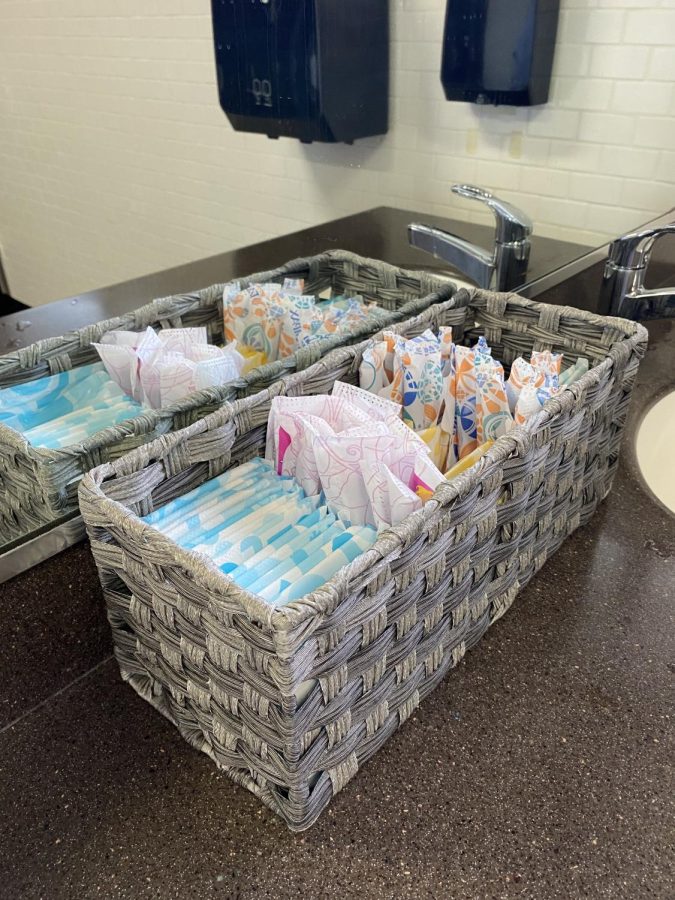Going with the Flow: Menstrual Products & Pinewood
Since the beginning of the 2022-23 school year, free menstrual products have been available in women’s bathrooms.
March 1, 2023
When senior Rachel Farhoudi got her period for the first time in elementary school, she remembers her lack of access to menstrual products, instead using toilet paper.
“I did not know what was going on,” Farhoudi said. Farhoudi, who has worked on projects writing policy suggestions on maternal mortality rates for Congresswoman Anna Eshoo’s Student Advisory Board, plans on majoring in public health, and is strongly interested in learning about reproductive health.
Farhoudi’s public middle school, in contrast, supplied students with low quality period products in machines that required students to pay. Despite that, Farhoudi acknowledged the inaccessibility of those products because the middle schoolers often didn’t have spare change to pay for the products.
Pinewood, however, has been supplying students with free menstrual products. While students previously had to ask the office manager for pads or tampons, recently, with the implementation of baskets of free products in the women’s restrooms, menstrual products are more accessible.
Office Manager Andrea Sanchez, in collaboration with Assistant Head of Upper Campus Haley Hemm and President and Head of School Scott Riches, were responsible for implementation of the products. During the start of the school year, Riches met with one advisory group from every grade level to hear student feedback about how to improve Pinewood. One of the topics that consistently came up was the lack of period products in bathrooms.
“[The products] make sure people’s needs are met when they’re at school,” Farhoudi said. “If people’s needs aren’t being met, it’s hard for them to learn.”
The California State Legislature and Governor Gavin Newsom affirmed this viewpoint in October 2021 by passing the Menstrual Equity for All Act of 2021, or AB-367. This act mandated that all public secondary schools and state-funded colleges and universities, with the exception of UCs, provide free menstrual products for students starting in the 2022-2023 school year. While this act helped combat “period inequity,” in which many low-income students are unable to obtain menstrual products, it also started conversations about period stigmatization across the state.
Pinewood, which is not required to follow this legislature due to its status as a private school, is beginning to see conversations about period stigmatization, something that is long overdue.
Farhoudi recalled an incident in a freshman writing class after presenting about period poverty for a research project where she led classmates in assembling bags of feminine hygiene products to give to an organization that worked with homeless shelters.
“A lot of the boys in my class were super awkward [and] uncomfortable about [bagging the menstrual hygiene products] and, even after[ward], people were talking about how it was a little uncomfortable,” Farhoudi said.
Ultimately, the visibility of pads and tampons helps chip away at the stigma associated with menstruating because they normalize conversations about periods, according to Sanchez. However, continuing to push for more understanding and empathy through conversations about menstruation with not only female students, but all students is important.
“If both female-identifying and male-identifying students and non-binary students talk about it . . . they know that the privileges across the board are not the same,” Hemm said. “Having to accommodate for a period is very different than not having a period at all. It’s also a lesson in privilege and equity.”







